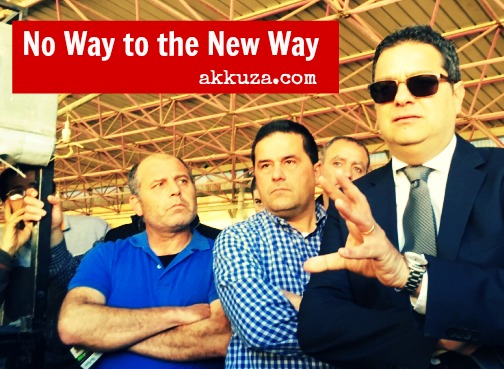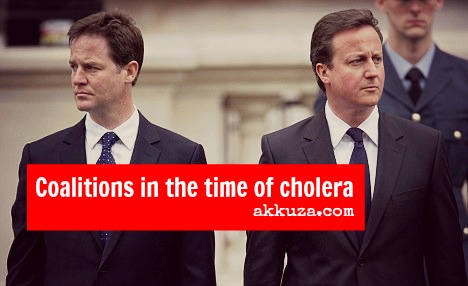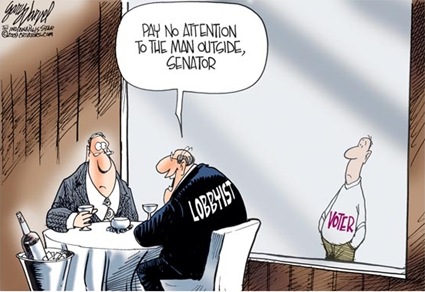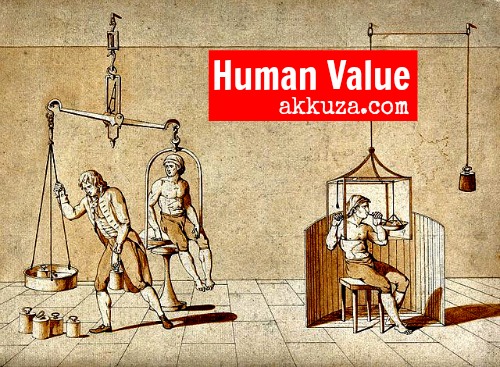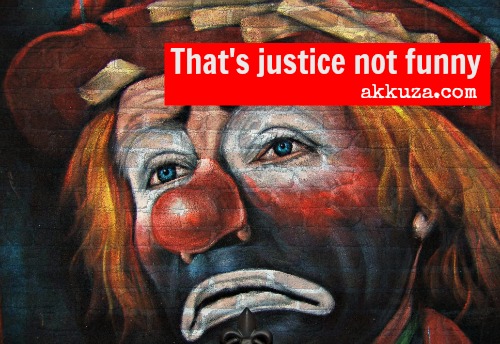Adrian Delia’s adopted slogan for his leadership bid is “Mod Ġdid” (New Way). In his latest outing before the press the candidate for leadership now claims to be persecuted by the PN establishment. It is clear now that his intention is to drive a wedge between himself, his support (supposedly the most of anti-establishment of anti-establishment) and the rest of the party with all its mechanisms, institutions and “baggage”. From last night the 4-way race has become, to some extent a battle between Delia and the rest – the PN in the public eye is reaching its turning point and it is one that has written “do or die” all over.
There is an irony though in the way this whole business has unfolded. A party that was beaten down to a pulp – shocked by the last election results – was being asked for the second time in five years to regroup, reform and react. The system in Malta requires “a leader” – the leader – around which to rebuild. It is as though a leader is required before anything can properly function in our political parties. It could be that we are driven by biblical inspiration and that a party’s chosen are helpless without a guiding light to follow – a messiah even. The many corollaries of this thinking include the blind faith, the unquestioning loyalty, the imagery of the flock and the sacrifices and hurts that are part and parcel of every devotee on whichever side of the great divide.
There begins the irony. Many have been hoping for a New Way for a very long time. Many, including myself, had hoped that the supposed rage that had been built against the inexcusable degradation of the rule of law in the last years would transform itself into sufficient inspiration to bring about the much desired change. Many saw this opportunity to begin such a change when the coalition against corruption took shape. Many believed. This would be a new way of politics – transparency, representation, meritocracy and the rule of law brought back to their rightful places in a republic that deserves much much more than the direction it has taken in the last few years. Many, including myself, were prepared to set aside their profound distrust of the old parties and to engage in the hope of kicking off this change – and we joined the coalition and its aim to rid Malta of corruption. Turiamoci il naso e votiamo la coalizione… in the hope of better things to come.
What we had not reckoned with was the New Way. It’s not really that New: it has been with us for a while in the guise of what this website called Inħobbkom Joseph in his first few years of office. Remember? The day Joseph Muscat was elected leader of the Labour Party (then still MLP) his first word to the Labour delegates was “Inħobbkom” (I love you). The New Way had begun. Love was in the air and the promise of change began with promises of listening to the hurts, of sweeping away the old and bringing in the new. We can see where this brought us. Fast forward to 2017 and looking back we know for a fact that Muscat’s New Way was simply the opportunity for a group within a party to make use of the social and political mechanisms until it reaches its aim of installing itself at the helm of the country. In true Tommasi di Lampedusa style – everything changed but everything remained the same. Circles within circles, friends within friends and the real change disappeared as quickly as a plot of virgin land in an ODZ.
The ugly part of the New Way is that it is difficult to reckon with. It has no scruples, no vision other than Mammon and the abuse of the faults and glitches of a constitutional system that cries for a proper reform. It is tough to reckon with a faceless, valueless body politic and even harder to break it down when the institutional guarantees are all undermined gradually. The New Way works best because it makes use of the partisan party systems that have been fine tuned as ladders to power without much thinking about their original reason for existence. The PN and PL stopped being thinking parties in a political sense decades ago. The PN’s last clear political position was EU entry. The PL’s was probably opposition to the EU – anything since is just a result of pragmatic opportunism and populism on the labour side and the PN flailing about helplessly with a multiple personality disorder.
Without a set of basic values there is no litmus test. There is no independent testing ground, no grundnorm against which to gauge new entries. Add onto this the fact that the last two elections that brought Labour to power and kept it there were also the period of the rise of social media and public scrutiny and reaction. Facebook’s rapid expansion into the political domain has meant that the 2008 election was the last election where information and its manipulation was in the hand of a closed elite. Already in that year the alarm bells began ringing in party HQs when websites such as this one showed the potential of online presence and discourse. In 2013 and 2017 the social media ruled supreme – and it was not only about propaganda. The combination of decades of partisan grooming, faulty party structuring and social media exposure brought us a new majority that crossed party lines. The faithful, the acolytes would process information in a mind-boggling way – and the smarter of the party machineries would make great political mileage out of this.
There is no logic in the New Way. There is no rule of law either. The New Way depends on courts of the general public – a general public that is poisoned with egolitics or the one measure with which everybody seems capable of seeing everything: their egoistic self. The New Way feeds on ignorance, misinformation and the materialistic yearning for more for oneself. The New Way is here and now and Delia and his supporters know that the New Way does not fight its battles institutionally. An admonition and invitation to stand aside by an ethics committee will count for nought in Delia’s mind. Already the spin is out – it’s the establishment fabricating evidence against me.
Such sweet sweet words to Joseph Muscat’s ears. In his own words it is like watching a film of something that he has lived through. Yes, Muscat, the real pioneer of the New Way used his power of incumbency to strike another blow in the face of the advocates for real change. He has already survived the public courts and public judgement by sowing doubt in the right place and by persevering in a propaganda campaign of deceit. He still has a personal secretary and Minister in his cabinet who should be anywhere but in politics. His New Way keeps them there smiling and speaking of love and positive vibes while the sheep and faithful bleat happily ignoring the long-term consequences of this folly.
The New Way is a strong and formidable adversary. Its bed was prepared long ago and it is the result of the race to the bottom begun almost two decades ago. The PN’s tesserati and delegates have a formidable choice before them. It is made even more daunting because they carry the psychological scars of the last electoral campaign where the New Way delivered that sound beating against all logical odds. It might be tough for them to believe that reneging the New Way is a good idea what with all the promises of short term gain that the New Way gives and given the precedent of the formidable prophet of the New Way in government.
There is no time to waste though. At this moment in time rejecting the New Way and opting for the real movement of change is not only a precondition to victory (on a party level) but the last hope that the reform this republic needs begins in earnest. In many ways the voters for this leadership race have one more chance to prove that the New Way has not won. It’s time to finish what had already been started.
It’s simple. Say no way to the new way.
